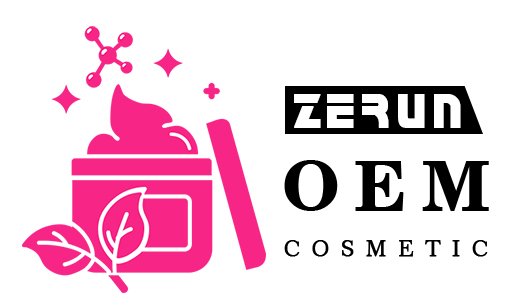Walk down the personal care aisle of any supermarket or beauty store, and you’ll quickly notice that body washes are far from generic. There are soft pastel bottles promising silky smooth skin, sleek dark bottles shouting “all-day freshness,” and neutral minimalist packaging that claims to suit everyone. But are these differences just a matter of branding, or do they reflect real differences in formulation and performance?
The truth is, the differences between women’s, men’s, and unisex body washes go far beyond aesthetics. They are driven by ingredient selection, fragrance profiles, targeted skin benefits, packaging design, and market trends. Women’s washes often focus on deep hydration and sensory luxury, men’s formulas are built for oil control and an energizing feel, and unisex products aim for balance so they can appeal to a broader audience without over-targeting.
For brands and product developers, understanding these differences is essential—not only to satisfy consumer needs but also to position products competitively in a crowded market. Let’s take a deep dive into how these categories differ and what’s shaping their evolution.
What Are the Key Differences in Ingredients Between Women’s, Men’s, and Unisex Body Washes?
Women’s body washes are typically formulated with a higher proportion of moisturizing ingredients such as shea butter, aloe vera, and hyaluronic acid to lock in hydration. Men’s body washes often focus on oil control and odor-neutralizing agents like activated charcoal, kaolin clay, and tea tree oil. Unisex formulas aim for middle-ground performance with gentle cleansers and moderate hydration that suits a wide range of skin types.
Why do women’s and men’s formulas use different active ingredients?
This comes down to skin biology and lifestyle factors. Women’s skin tends to lose water more quickly after cleansing, which is why humectants and emollients are prioritized. Men’s skin is usually thicker and produces about 20–25% more sebum, so ingredients that absorb excess oil and prevent clogged pores are more relevant.
| Target Group | Typical pH Range | Common Actives | Main Benefit |
|---|---|---|---|
| Women’s | 4.5–5.5 | Shea butter, glycerin, aloe vera, hyaluronic acid | Deep hydration, softness |
| Men’s | 5.0–6.0 | Charcoal, kaolin clay, tea tree oil, menthol | Oil control, refreshing feel |
| Unisex | 4.8–5.6 | Glycerin, oat extract, vitamin E | Balanced cleansing & moisturization |
Are surfactants different across categories?
Yes. Women’s products often use milder surfactants such as sodium cocoyl isethionate to prevent excessive dryness, while men’s washes might include stronger cleansers like sodium lauryl sulfoacetate for a more “squeaky clean” feel. Unisex washes typically fall in between, using blends that clean effectively but gently.
Do sensory enhancers play a role?
Absolutely. Women’s washes may include silk proteins or conditioning polymers for a smoother glide on the skin. Men’s products often feature menthol or eucalyptus for a cooling sensation. Unisex formulas generally keep textures and effects neutral to appeal to as many users as possible.
How do ingredient percentages compare?
Hydration-focused formulas might have 5–10% moisturizing actives, while oil-control formulas typically keep absorbent or antibacterial agents in the 2–5% range. Unisex formulas balance both categories at about 3–5% to avoid over- or under-delivering in either direction.
Ingredient choices are not random; they’re carefully aligned with skin needs, user expectations, and the brand’s positioning in the market.

How Do Fragrance Profiles Differ in Body Wash for Women Compared to Men’s or Unisex Options?
Women’s body washes often feature floral, fruity, or gourmand scents—think rose, peony, peach, or vanilla—because these evoke indulgence, softness, and self-care rituals. Men’s products lean toward woody, musky, or marine notes like cedarwood, vetiver, and ocean breeze accords, which communicate strength and freshness. Unisex fragrances are usually fresh, herbal, or citrus-based to appeal broadly without leaning heavily toward one gender identity.
Why does scent play such a big role in product choice?
Fragrance is one of the strongest emotional triggers in consumer behavior. A scent can connect to personal memories, project an identity, and influence how “clean” or “refreshed” someone feels after a shower. In fact, many consumers choose body wash based on scent first, then on performance claims.
| Segment | Popular Notes | Marketing Angle |
|---|---|---|
| Women’s | Jasmine, rose, vanilla, peach | Indulgent, luxurious, romantic |
| Men’s | Cedarwood, musk, marine | Strong, invigorating, confident |
| Unisex | Citrus, lavender, mint | Clean, versatile, refreshing |
Do regional markets favor different fragrance families?
Yes. In North America, fruity-floral blends dominate women’s lines, and oceanic scents lead men’s. In Europe, herbal and citrus profiles are popular for unisex lines. In the Middle East, rich, resinous notes like oud and amber are appreciated across genders.
How is scent longevity managed in formulations?
Fragrance oil concentration is fine-tuned based on market preference. Women’s products may have lingering skin scents, while men’s often emphasize a strong burst of freshness during use. Unisex products strike a balance to avoid alienating either scent-sensitive or scent-loving consumers.
The scent profile isn’t just an afterthought—it’s a core part of the product identity and can strongly influence repeat purchase behavior.
Are Body Washes for Women Formulated for Specific Skin Concerns?
Yes, and this is where women’s products often stand apart. Beyond basic cleansing, many formulas address dryness, sensitivity, or early signs of aging. Men’s products more often target oiliness, sweat, and odor. Unisex products usually focus on maintaining overall skin health without over-specialization.
How is dryness addressed in body washes?
Women’s body washes frequently feature high levels of humectants like glycerin, natural oils such as jojoba or almond oil, and barrier-strengthening agents like ceramides. These help replenish moisture lost during cleansing, especially important for women who shave regularly.
What makes a body wash suitable for sensitive skin?
Sensitive-skin formulas often omit artificial fragrance, opt for hypoallergenic preservative systems, and include soothing botanicals like chamomile, calendula, or colloidal oatmeal. These choices reduce the risk of irritation and are appealing to consumers with eczema-prone or reactive skin.
Can body washes have anti-aging benefits?
Yes. While anti-aging is more commonly discussed for face care, the body’s skin also benefits from antioxidants like vitamin E, green tea extract, and peptides, which help maintain elasticity and reduce oxidative stress.
| Skin Concern | Suggested Actives | Benefit |
|---|---|---|
| Dryness | Shea butter, ceramides, hyaluronic acid | Moisture retention & softness |
| Sensitivity | Aloe vera, chamomile, oatmeal | Calms irritation, reduces redness |
| Aging signs | Vitamin E, peptides, green tea | Protects collagen, maintains firmness |
Women’s body washes can act as multi-tasking products, offering skincare benefits in the shower before lotions or serums are applied.

Do Packaging and Branding Influence the Perception of Body Wash for Women?
Yes—often more than the formula itself in terms of first impressions. Packaging acts as a silent salesperson, and for women’s products, it’s often the first factor in drawing attention on the shelf.
How does color psychology influence perception?
Soft pastels, gold accents, and floral patterns suggest femininity, gentleness, and luxury. Men’s packaging tends toward deep blues, matte blacks, or metallic greys to signal strength and performance. Unisex products usually take a minimal, design-conscious approach with neutral colors.
Does shape and ergonomics matter?
Yes. Women’s products often have curves or slimmer profiles that are comfortable to hold. Men’s may have more angular, sturdy shapes to reinforce a rugged, performance-oriented brand image.
What about sustainability in packaging?
Sustainability is increasingly important. Many brands now use post-consumer recycled (PCR) plastics, biodegradable labels, and refillable packaging systems.
| Segment | Typical Design | Material Choices |
|---|---|---|
| Women’s | Transparent, floral motifs | PET, glass, PCR |
| Men’s | Matte black, textured grip | HDPE, PCR |
| Unisex | Minimalist, clear labeling | PET, aluminum |
Packaging design shapes perception and can be a differentiator even before a consumer tests the product.

Which Market Trends Drive the Development of Gender-Specific Body Washes?
The biggest drivers right now are clean beauty, sustainability, vegan claims, and multi-functionality. These trends influence ingredient sourcing, formulation methods, and even marketing messages.
How has clean beauty changed body wash formulations?
There’s a strong shift toward sulfate-free, paraben-free, and dye-free products. Natural surfactants from coconut or sugar are replacing harsher cleansing agents, and plant oils are favored over mineral oil.
Is sustainable packaging a deal-breaker for consumers?
For many younger and eco-conscious shoppers, yes. Brands that fail to meet sustainability expectations risk losing market share to competitors offering PCR materials, biodegradable options, or refill systems.
How relevant are vegan and cruelty-free claims?
Vegan and cruelty-free certifications are becoming a baseline expectation in certain markets. These claims are particularly powerful in unisex and women’s products, where ethical considerations often influence purchase decisions.
| Trend | Women’s Adoption | Men’s Adoption | Unisex Adoption |
|---|---|---|---|
| Clean beauty | High | Medium | High |
| Sustainable packaging | High | High | High |
| Vegan formulations | Medium | Low-Medium | High |
Is multi-functionality here to stay?
Yes, especially in men’s and travel-friendly products. 2-in-1 body and hair washes remain popular, while women’s and unisex lines are seeing more “benefit-driven” products like exfoliating or brightening body washes.
Successful brands integrate performance with values, meeting both skin needs and consumer ethics.
Is There a Real Performance Difference Between Women’s, Men’s, and Unisex Body Washes?
There is a difference—but not always as dramatic as marketing suggests. Well-formulated unisex products can perform just as well for cleansing and hydration, though fragrance and texture preferences often drive buying decisions.
Do benefits overlap?
Yes. All categories cleanse, hydrate to some degree, and create a sensory experience. The main measurable differences come in either enhanced oil control for men’s or enhanced moisturization for women’s.
Is perception stronger than reality?
Often. Studies have shown that 70% of perceived performance difference comes from sensory cues—like scent and lather—rather than actual skin results.
| Category | Hydration Score (0–10) | Oil Control Score (0–10) |
|---|---|---|
| Women’s | 8.5 | 6.0 |
| Men’s | 7.0 | 8.5 |
| Unisex | 7.5 | 7.5 |
When does gender-specific matter most?
If a user has extremely dry or extremely oily skin, a gender-specific product may provide better targeted results. For average skin types, a high-quality unisex formula can be just as effective.
In most cases, it’s the quality of formulation that matters—not whether the bottle is pink, black, or beige.

Conclusion
Women’s, men’s, and unisex body washes differ in their ingredients, fragrances, targeted skin benefits, packaging, and alignment with market trends. These differences can be subtle or significant, but understanding them helps brands develop products that meet the needs and desires of their target audience.
At Zerun Cosmetic, we bring decades of skincare manufacturing expertise to develop custom private-label body washes that match your brand’s vision and market. From premium ingredients to sustainable packaging, and with free design and samples, we help you create a body wash line that not only stands out but also delivers real results. Contact us today to start developing your next bestselling body wash.





